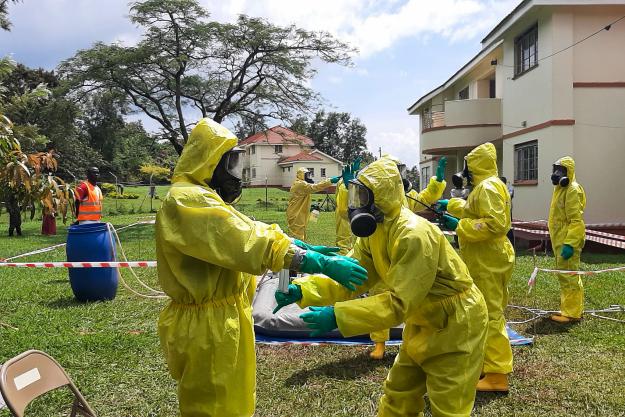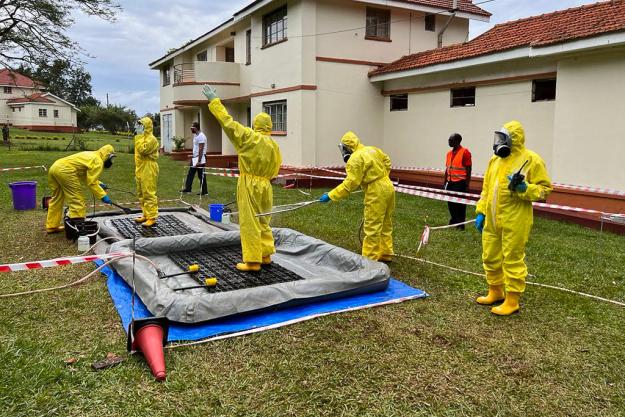
THE HAGUE, Netherlands—16 January 2023— Emergency responders in East Africa gained hands-on experience in managing chemical incidents during an operational training at the Uganda Rapid Deployment Capability Center (URDCC) in Jinja, Uganda from 5 to 14 December 2022.
Now in its fifth edition, the training is designed to teach participants how to safely conduct critical emergency operations and support functions following an act of chemical terrorism or other toxic chemical releases.
The training was organised by the Organisation for the Prohibition of Chemical Weapons (OPCW) and the National Authority of Uganda with financial support from the government of the United Kingdom of Great Britain and Northern Ireland. Technical assistance was provided by the Fire Rescue Service of the Czech Republic, who are also a recipient of the 2022 OPCW-The Hague Award.
“Chemicals can pose a risk if they are misused or when safety protocols in production, transportation, storage, use and disposal are not followed. The risks may range from accidental explosions to intentional use by terrorists to manufacture weapons of mass destruction,” said H.E. Nyirabashitsi Sarah Mateke, Minister of State for Youth and Children, in her opening remarks.
The training participants received practical experience in five key areas: presentations, demonstrations, table-top exercises, on-site training and field exercise. They performed various command roles to learn strategies they can implement in their respective countries as future instructors.
The training was attended by 28 representatives from five OPCW Member States in East Africa: Burundi, Kenya, Rwanda, Uganda, and the United Republic of Tanzania.

Background
As the implementing body for the Chemical Weapons Convention, the OPCW, with its 193 Member States, oversees the global endeavour to permanently eliminate chemical weapons. Since the Convention’s entry into force in 1997, it is the most successful disarmament treaty eliminating an entire class of weapons of mass destruction.
Over 99% of all declared chemical weapon stockpiles have been destroyed under OPCW verification. For its extensive efforts in eliminating chemical weapons, the OPCW received the 2013 Nobel Peace Prize.
The OPCW International Cooperation and Assistance Division provides specialised and technical assistance to Member States to help them meet their obligations under the Convention through a wide range of capacity building activities.
